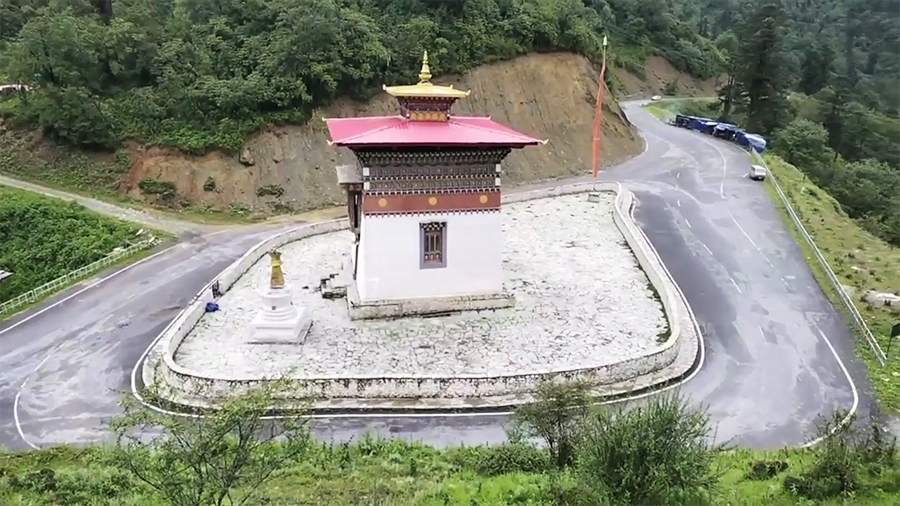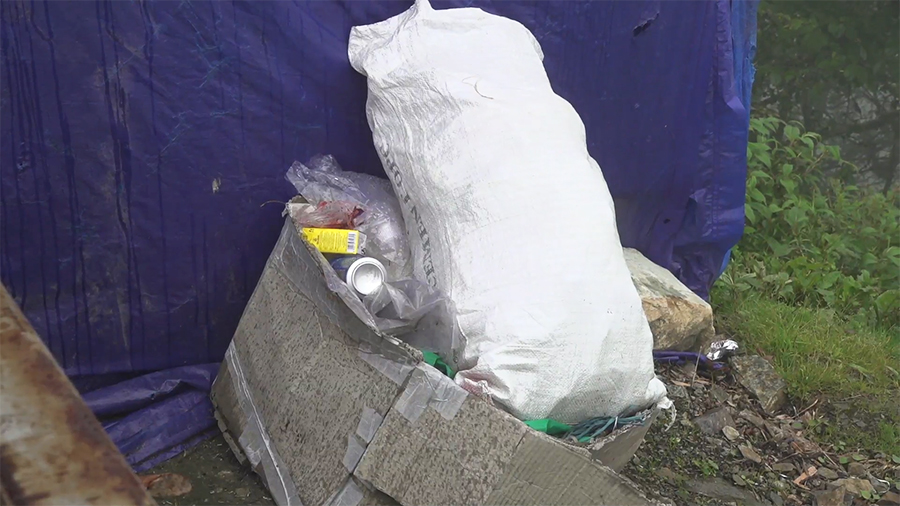
The Pelela Pass is one of the highest mountain passes located along the east-west primary national highway. Located in Wangdue Phodrang’s Sephu Gewog, the picturesque pass is a favourite picnic spot for many. The pass also has several businesses catering to travellers along the highway. With travellers and visitors to the pass increasing, managing waste at Pelela is becoming a challenge. Locals at Pelela say those who come for sightseeing and for picnics, leave behind waste, mostly PET bottles, plastics, and beer cans.
The scenic Pelela Pass holds valuable cultural and religious significance in the history of the country.
Pelela Pass is a gateway for travellers to central and eastern Bhutan. The pass boasts a pristine environment, but among the dense fog that engulfs the pass on a typical summer’s day, a common issue is on the rise.
 People doing business at the pass say they frequently clean the pass and its surroundings, but keeping the pass free of waste is difficult for them.
People doing business at the pass say they frequently clean the pass and its surroundings, but keeping the pass free of waste is difficult for them.
Coupled with the lack of a proper waste disposal site, people here usually bury waste they collect in nearby fields. What’s left is burnt.
“We have a severe waste management issue here at the Pelela Pass. People come here from different places during auspicious days and school vacations. They are coming here for picnics as this place is located on a mountain top. So, they bring juice boxes and beer cans. When they leave, the waste is left behind,” said Kunzang Dorji, a resident,
“Waste is littered mostly by travellers and people who come for sightseeing. They mostly litter empty cans and plastic items. We do not have a waste disposal site here. I have kept some of the waste I collected at my house. Businesses here are keeping it with them in sacks,” said Passang, another resident.
Waste management is not the only issue at the Pelela Pass. The area does not have a public toilet leading to open defecation.
“We have a severe problem of not having a toilet facility here. First of all, even if we want to construct toilets, there is no water. We also do not have space to construct toilets. Some travellers defecate in the open, behind our shops,” said Kinley Wangchuk, a resident.
“We would be grateful if Sephu Gewog could send one waste pick up vehicle once every two months, if possible. There is no waste disposal site here. Moreover, we cannot dump or dispose of waste here, as it is near the Druk Wangyel Chorten. For collecting wastes, we will take the responsibility,” said Kunzang Dorji, a businessman.
According to the Sephu Gup, people of Pelela Pass can hand over the waste they collect to their chiwog during the monthly cleaning campaign.
The Gup added that there are no plans from the Gewog administration to construct restrooms at the pass.
Changa Dorji, Wangdue Phodrang
Edited by Sherub Dorji







